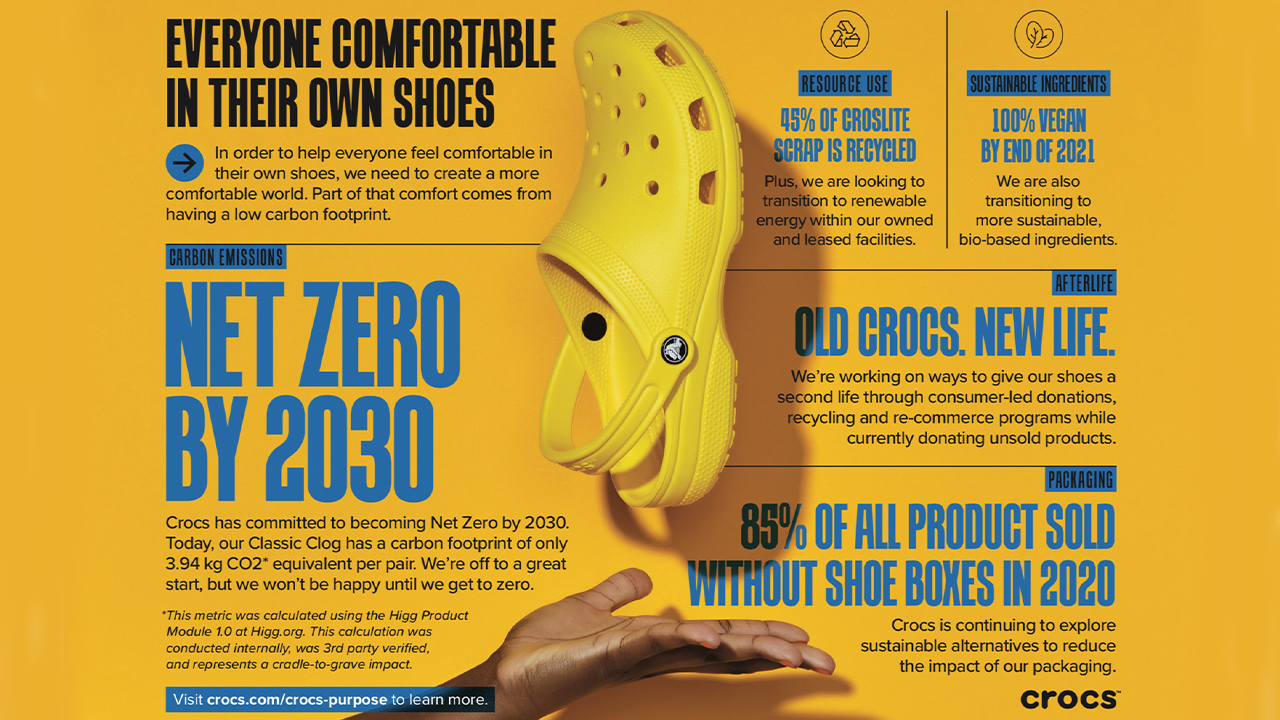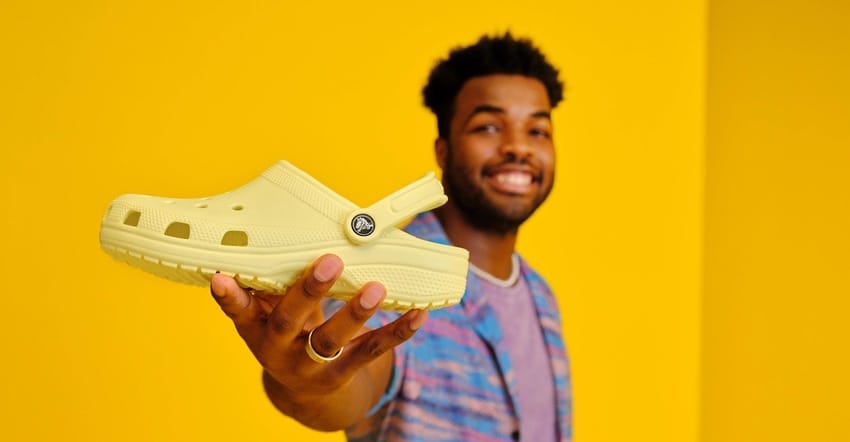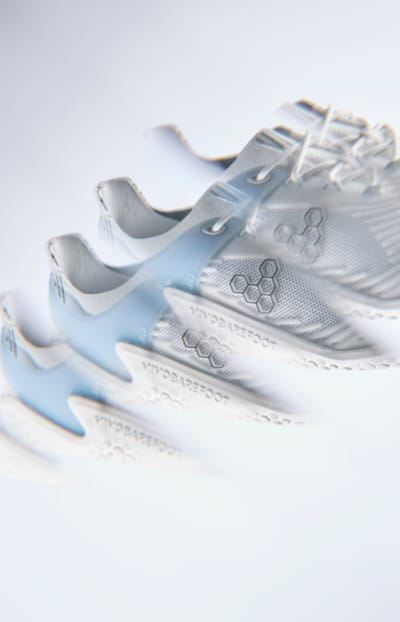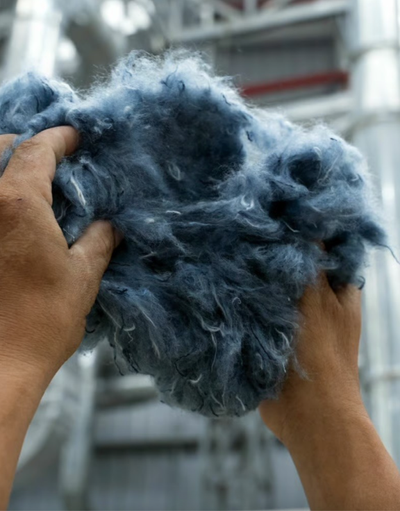Crocs Inc., the footwear brand synonymous with its unique and often polarising clogs, has unveiled its 2023 Comfort Report. Now in its third year, the report delineates the company’s substantial progress in corporate responsibility and sustainability. Yet, it also highlights areas where the company’s efforts are viewed as insufficient by some critics.
Central to Crocs' sustainability strategy is its commitment to “Creating a More Comfortable World for All.” This mantra underpins their approach to environmental stewardship, which the 2023 report ambitiously outlines. Among the key initiatives is the successful pilot of the 'Old Crocs. New Life' takeback program. This scheme invites consumers to return their worn-out Crocs, regardless of condition, for repurposing. Initially tested in select locations, the program's expansion across all retail stores and availability to online customers in the continental United States starting in 2024 represents a significant step towards a circular economy for Crocs.
Furthermore, Crocs has made notable strides in material innovation, particularly through enhancements in its proprietary Croslite compound. Since August 2023, the company has consistently achieved a monthly average of over 20 percent bio-circular content in this material. This breakthrough has been instrumental in reducing the carbon footprint of the iconic Classic Clog by 6.1 percent compared to the 2021 baseline. These efforts are in line with Crocs' ambitious goals to halve the carbon emissions of the Classic Clog by 2030 and reach Net Zero by 2040.
However, it is this 2040 net zero target that has drawn scrutiny. Originally, Crocs pledged to achieve net zero emissions by 2030. This target was pushed back by a decade following the acquisition of HEYDUDE, a move that significantly broadened Crocs’ operational footprint and added complexity to its emissions reduction strategies. The delay has sparked criticism from environmentalists who argue that extending the deadline undermines urgent climate action needed within the industry.

The footwear industry, particularly fast fashion, faces increasing pressure to adopt and meet aggressive short-term sustainability targets alongside their long-term objectives. Critics contend that by postponing the net zero deadline, Crocs is delaying essential actions that could have an immediate impact on mitigating climate change. They argue that more immediate and robust measures are necessary to align with global climate imperatives and industry standards.
In defence of its revised timeline, Crocs maintains that the complexity of integrating and aligning the sustainability frameworks of HEYDUDE with its own necessitated a recalibration of its targets. This strategic adjustment, according to Crocs, reflects a more realistic pathway to achieving comprehensive sustainability across the expanded business.
Despite this, Crocs’ commitment to innovative solutions in sustainability remains evident in other aspects of the 2023 Comfort Report. The company’s expansion of the 'Old Crocs. New Life' program is a tangible example of its efforts to embed circularity within its business model. By incentivising customers to return their old footwear for repurposing, Crocs not only reduces waste but also promotes a culture of reuse and sustainability among its consumer base.
Moreover, the advancements in bio-circular content for Croslite underscore Crocs' ongoing commitment to reducing its environmental impact through material innovation. This move aligns with the growing consumer demand for more eco-friendly products and reinforces the company's position as a leader in sustainable footwear.

However, balancing growth with sustainability remains a complex challenge. The acquisition of HEYDUDE has introduced new variables into Crocs' sustainability equation, complicating efforts to swiftly reduce greenhouse gas emissions. This scenario is emblematic of broader industry tensions, where the pursuit of growth and expansion often clashes with the imperatives of sustainable development.
As Crocs navigates these challenges, it faces the dual task of meeting consumer expectations for stylish and comfortable footwear while adhering to increasingly stringent environmental standards. The company's 2023 Comfort Report reflects a nuanced approach to this balancing act, showcasing significant progress in some areas while revealing gaps and extending timelines in others.
In the broader context, Crocs’ experience underscores the evolving landscape of corporate responsibility in the fashion industry. Companies are not only expected to innovate and excel in their product offerings but also to demonstrate leadership in sustainability. As consumer awareness and demand for environmentally responsible products continue to rise, brands like Crocs are under pressure to accelerate their efforts and set more ambitious targets.





